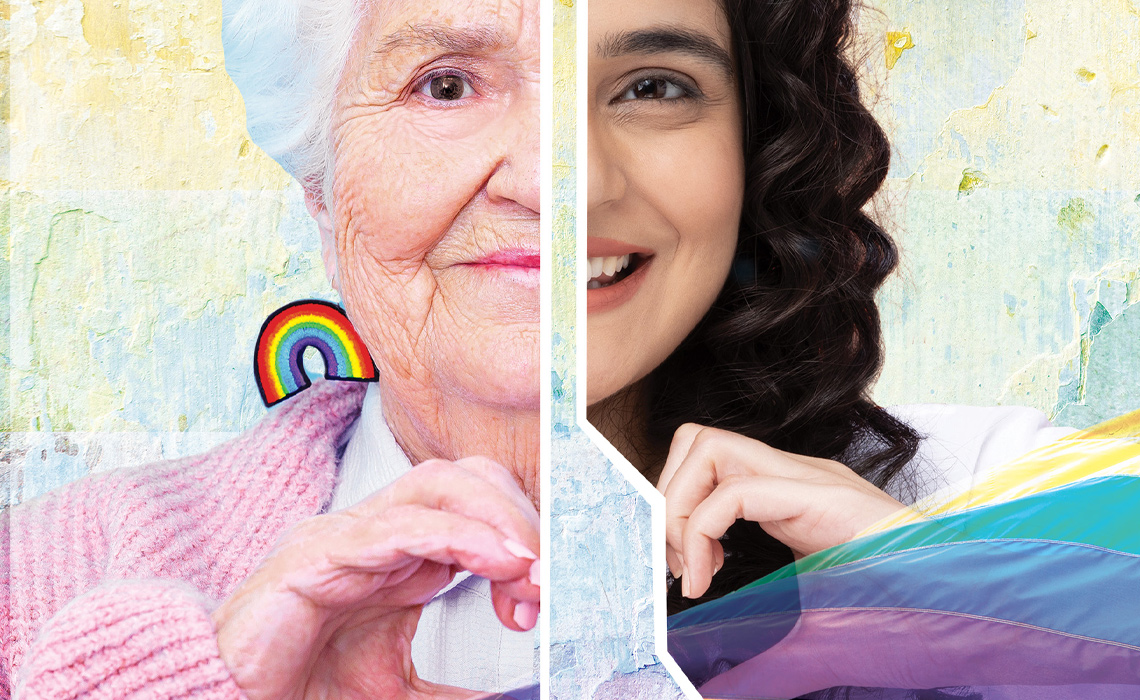2SLGBTQIA+ aging

There are many factors that play into aging for each individual, and aging within the 2SLGBTQIA+ community brings its own unique experiences and challenges, according to Dr. Celeste Pang, PhD, an assistant professor of women’s and gender studies at Mount Royal whose program of research focuses on 2SLGBTQIA+ aging and health-care access. Pang recently co-authored a national study, Aging and Living Well Among LGBTQI Older Adults in Canada: Findings from a National Study, that blends hard data with personal anecdotes.
“If we are thinking on a broader level, this is a national study of queer and trans older adults being thought about in public policy. Aging may well look very different from the dominant paradigm, which is very ableist and cis-heterosexist,” Pang says.
For example, there is an assumption that aging people have family members who will take care of them, but Pang says this is not always the case for queer and trans people. While many participants stated they maintain ties to their family of origin, many also identified belonging to a chosen family. They cited their friends and community as other important sources of support and connection. The report details the unique and individual experiences of various participants, who ranged in age, ethnicity, geographical location, sexual orientation and gender identity.
Among the key findings is the fact that many 2SLGBTQIA+ Canadians struggle with housing. Beyond the affordability crisis, there are concerns about finding a home that is safe and allows for a sense of belonging and community. Participants noted that when they are forced to move for financial reasons, it often pulls them away from the community where they have established connections to other queer and trans people. “There is an immense desire to have spaces in older age where they could be among other queer and trans people and feel a sense of belonging,” Pang says. “Without it, there are consequences for that sense of belonging and overall sense of wellness.”
Participants also spoke about wanting to feel recognized and respected. “Much of the support available does not reflect what people in our community want or need,” Pang says. “Respect is at the base of what every participant was demanding.”
Additional key findings related to other areas of aging including employment, health-care access, and death and end-of-life well-being. The study is the largest-scale Canadian academic endeavour focused on 2SLGBTQIA+ older adults and aging issues and the first to explore associated issues around employment.
“We are in a time of facing increased anti- 2SLGBTQIA+ violence and organizing in Canada; we are also facing increased efforts across the country to further private health-care and eldercare services,” Pang says. “Learning about the situation of 2SLGBTQIA+ older adults and the intersection of sexual and gender minority status and aging is a way to illuminate systemic and structural barriers that affect everyone.”

